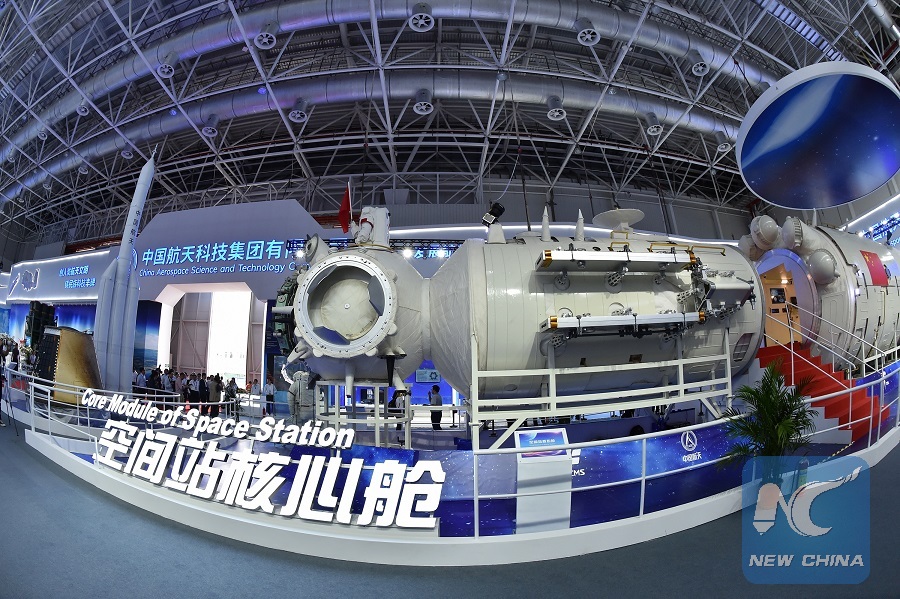First batch of cooperation projects aboard China space station released
China released the first nine international cooperation projects for the country's planned space station.
China released the first nine international cooperation projects for the country's planned space station.

Photo taken on Nov. 5, 2018 shows a full-size model of the core module of China's space station Tianhe exhibited at the 12th China International Aviation and Aerospace Exhibition (Airshow China) in Zhuhai, south China's Guangdong province. [Photo/Xinhua]
The selection was jointly implemented by the China Manned Space Agency (CMSA) and the United Nations Office for Outer Space Affairs (UNOOSA).
The nine projects involve 23 entities from 17 countries in the fields of aerospace medicine, space life sciences and biotechnology, microgravity physics and combustion science, astronomy and other emerging technologies.
According to Lin Xiqiang, spokesperson of the CMSA, one of the selection criteria is scientific significance. The selected projects should not only promote the progress in related scientific fields but also help applicant countries strengthen aerospace technology and research capacity.
"For example, the selected 'Space Cancer' project will improve the understanding of the cause of cancer and offer a new perspective for cancer prevention and treatment; a study about miscible liquids under microgravity will facilitate the innovation in chemical or biochemical industries," Lin said at a press conference Wednesday.
Other selected projects include studies about microorganisms under microgravity, flame instabilities, gamma-ray bursts detection and the development of solar batteries.
Hao Chun, director general of the CMSA, said the agency will continue to work closely with the UNOOSA to improve and publish the second batch of cooperation projects.
China has always been engaged with the international space community.
In March 2016, the CMSA and UNOOSA signed a memorandum of understanding to invite UN member states to conduct scientific experiments aboard the China space station. In May 2018, 42 cooperation proposals from 27 countries have been received after the two agencies sent out the invitation.
China's space station is expected to be completed in 2022. The station will serve as a space laboratory to carry out multidisciplinary scientific research, technological verifications and applications.
It will have a core module and experiment modules, which are under development.
Sixteen experiment racks, external platforms for experimental payloads and an optical module will be installed in the station.
According to Lin, China's space station will further open up to international exchanges and cooperation in equipment development, space applications, astronaut training, joint flights and aerospace medicine.
China is also willing to share the achievements of the country's manned spaceflight with countries all over the world, especially with the developing countries, Lin said.

